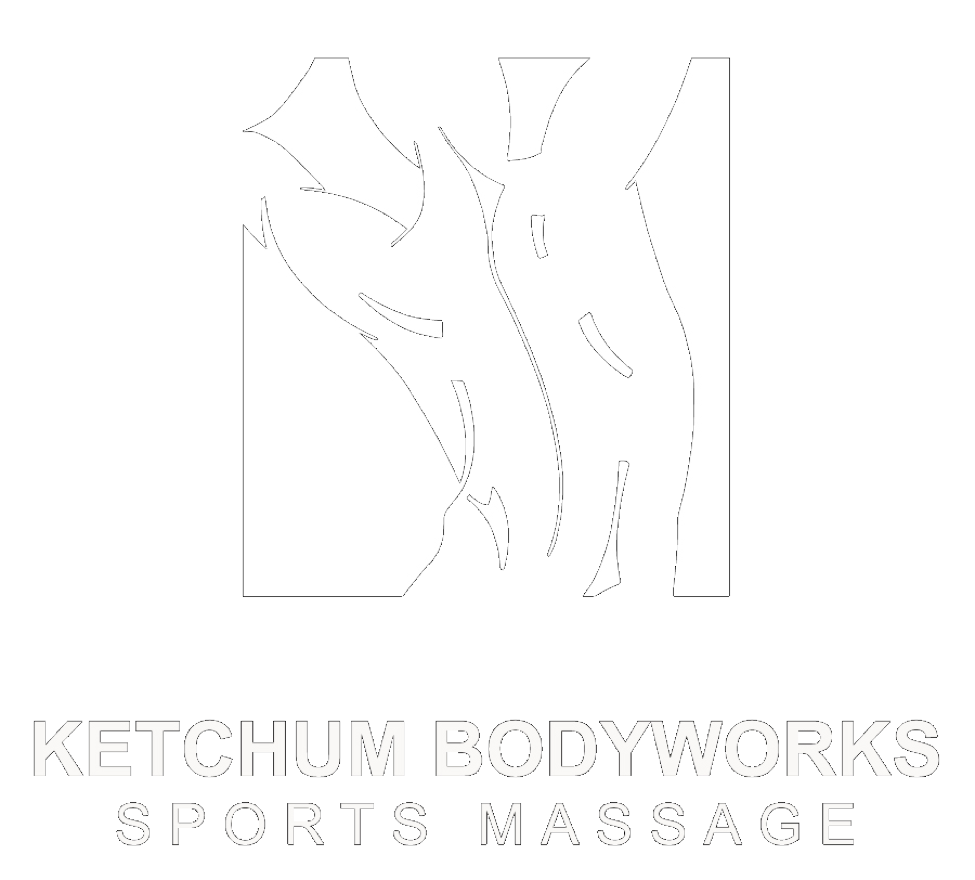The following are frequently asked questions that we receive here at Ketchum Bodyworks. This is not medical information and is presented for informational purposes only. For particular conditions, please consult with your medical practitioner or doctor. If you have questions you don’t see answered here, please contact us we’ll be happy to help..
How often should I get a Sports Massage?
That depends on several factors such as training volume and intensity, whether or not you have chronic pain or acute injury, and other factors. For some athletes, a weekly massage gives huge results. Other athletes only get an occasional Sports Massage if they’re in pain. The best way to reduce the effects of hard training is with regular Sports Massage. We suggest you try a series of 3 to 4 treatments to see how you feel when the positive effects accumulate. This will give you a better understanding of the recovery process and how your body responds.
Will one single Sports Massage fix my problems?
Sometimes. If you have a tight painful neck and shoulder you can expect to come away from a Sports Massage experiencing a lot of relief, at least for a while. But it probably took you months or years to get that way. It’s not reasonable to expect permanent relief from a 1 hour session. The effects of Sports Massage are very much like the effects of athletic training. Your first time skiing won’t turn you into Bode Miller. But a consistent training program will turn you into a competitive skier.
Consistent Sports Massage can offer very positive results to chronic issues and painful conditions. The therapists at Ketchum Bodyworks are experienced with the issues seen in modern sports and athletics. We will be able to assess your issues and help you design a program to help you overcome them in the shortest possible time. We will also give you homework to empower you to take care of your self.
The therapists at Ketchum Bodyworks are athletes. Why is this important?
It’s important that the therapists at Ketchum Bodyworks are also athletes because it gives them an understanding of the issues that you, the athlete, are facing when you come to see us. Would you hire a personal trainer that had never lifted weights? Or use a triathlon coach that had never raced? It only makes sense that you receive a Sports Massage from someone who has been where you’ve been. We understand what shin splints and tight hamstrings feel like. When a skier comes to us and says my legs are dead we know exactly how they feel and what to do about it.
Is Sports Massage painful?
No, not usually. Our therapists are experienced and they will work up to your individual capacity for pressure. For example, if you just ran a marathon recently, they know you can’t take a lot of pressure on your legs. If they see you wincing or resisting their strokes, they know to back off. But sometimes individuals develop knots, adhesions, or trigger points that require stronger bodywork and may cause discomfort. If this is the case, the therapist and client communicate about pain levels, working together to make the session as productive as possible and as pain free as can be. We use a therapeutic dose of pressure to maximize the benefits and minimize your discomfort.
I have a big race tomorrow. Should I get a deep Sports Massage just before it?
No, absolutely not. Deep work is reserved for conditions and issues that call for it. It’s typical to be sore for a day after a deep Sports Massage. That would interfere with an athletic event or competition. A pre-event Sports Massage would be the right choice before a race. Pre-event Sports Massage boosts circulation and flexibility. It leaves muscles relaxed and ready for action. Pre-event massage can help prevent muscle and tendon injuries and improve performance. We also find that activating and enhancing the neuro-muscular connection, using Muscle Energy Technique / MET is a very effective and efficient method for maximizing your function and performance.
Are there times that I shouldn’t get a Sports Massage?
Yes. Contraindications are conditions when you should not be massaged. If you are under a doctor's care, it is strongly advised that you receive a written recommendation for massage or bodywork prior to any session. A partial list of contraindications are: fever, severe heart disease, contagious skin conditions, inflammation, abrasions, cuts, hematoma, cancer, neuritis, recent surgery, infectious diseases, diabetes with vascular dysfunction, fractures, and acute injury. It is your responsibility to alert the therapist of any medical condition or injury before a massage begins.
Some conditions are localized so massage may take place except in the affected area. Depending on the condition, approval from your doctor may be required. During the initial session, we will review your intake form and discuss in detail any prior injuries and surgeries you may have had.
Can I just use the foam roller?
Yes, by all means. Self massage, foam rolling and stretching are a few of the best things an athlete can do for him or herself. We want to empower you with homework and techniques so you can maintain the benefits. But even though self-massage is beneficial, it doesn’t replace a good Sports Massage by a trained therapist who can help you identify symptoms as well as the underlying causes.
What should I wear?
This is not your typical relaxation / passive massage. We tend to work with you in prone, supine and side lying positions depending on your needs. We will also be mobilizing your joints and have you interacting with us at times. With that in mind, please bring loose fitting comfortable clothing such as, jogging shorts and sports bra.

